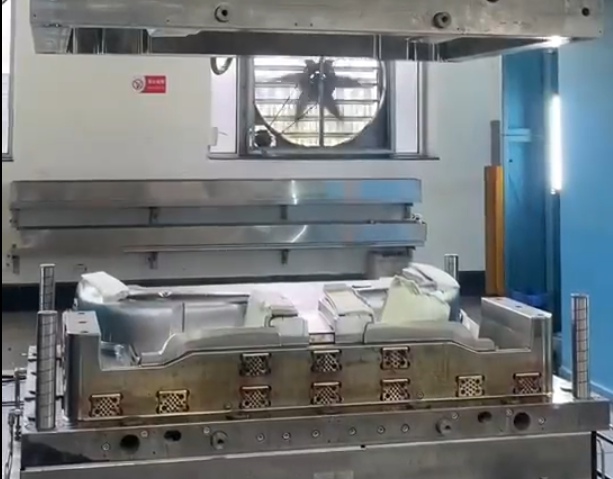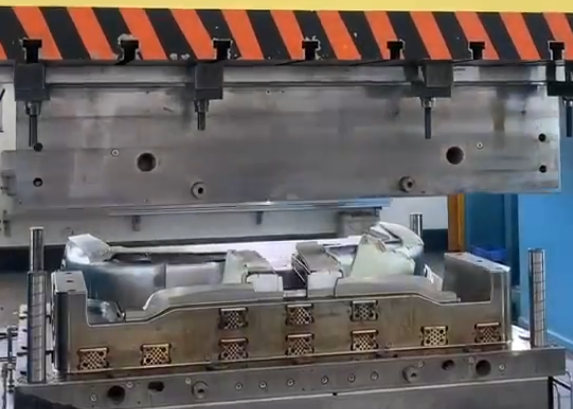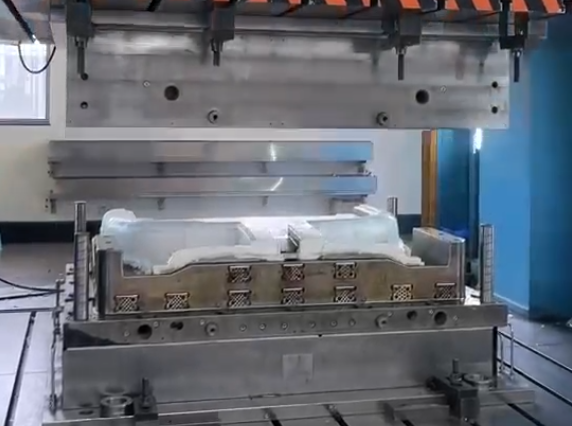
Specialize in Compression molds

Specialize in Compression molds
Introduction
In the manufacturing of SMC molds, carbon fiber molds, and compression molds, precision and control are critical factors that determine the quality of the final product. Separated heating units represent a significant technological advancement in this field, offering precise temperature regulation and improved material properties. This article delves into the benefits and technology behind separated heating units and their impact on the quality, strength, and durability of various types of molds.

Separated heating units are designed to provide independent temperature control across different sections of a mold. This allows for a uniform heat distribution, which is essential for optimal curing and achieving the desired mechanical properties of the molded material. By precisely controlling the temperature, these units help ensure that the entire mold area reaches the correct curing temperature at the same time.
In SMC (Sheet Molding Compound) molds, precise temperature control is crucial for ensuring the material cures correctly. The separated heating units enable manufacturers to maintain consistent temperatures, avoiding hotspots or uneven curing. This results in higher quality molds with improved mechanical properties such as tensile strength, impact resistance, and overall durability. The accurate temperature control also helps in reducing cycle times and increasing production efficiency.
Carbon fiber molds require precise temperature management to achieve the best material properties. Separated heating units allow for fine-tuned temperature adjustments, which are necessary for the different layers of carbon fiber to cure properly. This precise control ensures that the mold achieves the desired strength-to-weight ratio and structural integrity. By optimizing the curing process, separated heating units help produce carbon fiber molds that are not only strong and lightweight but also consistent in quality.
Compression molds benefit significantly from the use of separated heating units. These molds often involve complex geometries and require uniform temperature distribution to ensure the material fills the mold cavity completely and cures uniformly. Separated heating units provide the necessary control to achieve this uniformity, reducing the risk of defects such as voids, warping, and weak spots. This leads to compression molds that exhibit superior strength, durability, and performance in their intended applications.

The integration of separated heating units into the mold production process enhances both efficiency and consistency. By providing precise temperature control, these units minimize the need for rework and reduce the occurrence of defects. This streamlines the manufacturing process, saving time and resources while ensuring that each mold meets high-quality standards. The consistent output also improves overall production throughput and reliability.
Separated heating units offer significant flexibility in mold manufacturing. They allow for customized temperature profiles tailored to the specific requirements of different materials and mold designs. Whether producing SMC molds, carbon fiber molds, or compression molds, the ability to adjust temperatures precisely helps manufacturers meet diverse client specifications and achieve optimal material performance. This adaptability is particularly beneficial for complex projects that demand precise control over the molding process.
Several case studies highlight the practical benefits of using separated heating units in mold manufacturing. For instance, in the automotive industry, where high-strength and lightweight components are essential, the use of these heating units in carbon fiber mold production has resulted in parts that meet stringent performance criteria. Similarly, in the aerospace sector, the precision offered by separated heating units has enabled the production of durable and reliable SMC and compression molds used in critical applications.
Besides technical benefits, separated heating units also offer environmental and economic advantages. The precise control over the heating process reduces energy consumption by optimizing temperature settings, leading to lower operational costs. Additionally, the reduced need for rework and higher production efficiency contribute to more sustainable manufacturing practices. These factors collectively enhance the environmental footprint and economic viability of mold production.
The future of mold manufacturing with separated heating units is promising, with ongoing research and development aimed at further enhancing their capabilities. Potential innovations include advanced temperature sensors, real-time monitoring systems, and automated adjustments to maintain optimal temperature conditions throughout the molding process. These advancements will continue to improve the precision, efficiency, and quality of SMC, carbon fiber, and compression molds.

Separated heating units represent a pivotal advancement in the manufacturing of SMC molds, carbon fiber molds, and compression molds. By providing precise temperature control and optimizing the curing process, these units enhance the quality, strength, and durability of the final products. The ability to customize and adapt the heating profiles to specific material requirements further adds to their value in diverse applications. As technology continues to evolve, the benefits of separated heating units will only grow, solidifying their role in producing high-performance molds for various industries.
Contact US
Email: master@zjmdc.com
Tel: +86 576 84616076
Fax: +86 576 84616079
Mobile: +86 13906573507(Mr. Wang)
Address: No.116 mochuang road, Huangyan Xinqian street,Taizhou,Zhejiang,China